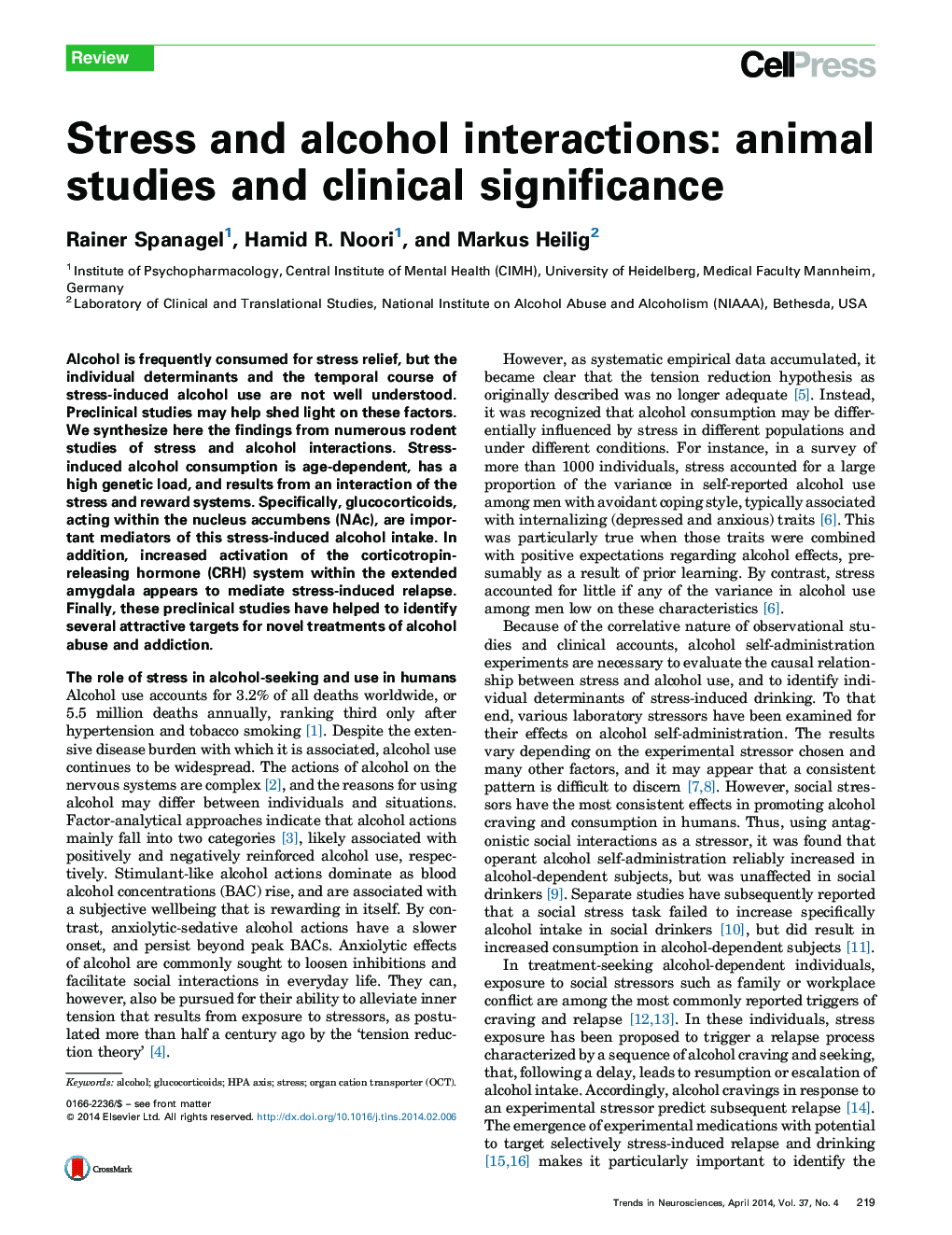| Article ID | Journal | Published Year | Pages | File Type |
|---|---|---|---|---|
| 6286779 | Trends in Neurosciences | 2014 | 9 Pages |
Abstract
Alcohol is frequently consumed for stress relief, but the individual determinants and the temporal course of stress-induced alcohol use are not well understood. Preclinical studies may help shed light on these factors. We synthesize here the findings from numerous rodent studies of stress and alcohol interactions. Stress-induced alcohol consumption is age-dependent, has a high genetic load, and results from an interaction of the stress and reward systems. Specifically, glucocorticoids, acting within the nucleus accumbens (NAc), are important mediators of this stress-induced alcohol intake. In addition, increased activation of the corticotropin-releasing hormone (CRH) system within the extended amygdala appears to mediate stress-induced relapse. Finally, these preclinical studies have helped to identify several attractive targets for novel treatments of alcohol abuse and addiction.
Keywords
Related Topics
Life Sciences
Neuroscience
Neuroscience (General)
Authors
Rainer Spanagel, Hamid R. Noori, Markus Heilig,
